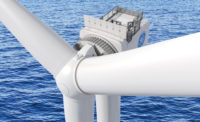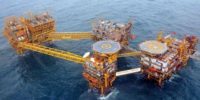Hill International has held off an activist investor's push begun two months ago to boost the Philadelphia-based construction management and risk consultant's stock price through a possible sale. The company's shareholders voted on Aug. 7 to reject two new directors from the activist, Bulldog Investors, as well as its proposal to hire an investment banker to probe "liquidity" options.
The firm did agree to add two new independent directors to its seven-member board, with "appropriate candidates" to be identified over the next several months. "This was not the result of any agreement with Bulldog and these two new directors will not be from Bulldog or anyone they have recommended," says a Hill spokesman. "Bulldog lost the proxy fight and will have no say in how our board operates going forward."
The spokesman says Bulldog principals Philip Goldstein and Andrew Dakos lost their bids for board seats, receiving 43.1% and 37.2% of voted shares, respectively. Two other re-elected board members each received 54.6% of votes for new three-year terms.
The meeting was rescheduled from early June after a Delaware Chancery court supported Bulldog's intention to seek the board seats and proposal vote. Hill shareholders did agree to Bulldog's push to rescind a so-called "poison pill" provision recently put in place as a defense against a potential buyer accumulating a certain amount of shares.
But Hill said in a statement that the approval was "moot" because the firm's board had already canceled the provision in June.
Bulldog has about a 6.6% ownership share in the firm. According to published reports, Hill International President and CEO David Richter, his father and firm Chairman Irvin Richter and family members own about 25%.
David Richter expressed gratitude for the board support of the firm's "strategic direction" that includes having about 47% of its revenue from Middle East building markets and a recent corporate relocation to Philadelphia from central New Jersey.
Bulldog, which was among ten noted activist investors ranked by The Wall Street Journal, touts its "40 proxy campaigns to enhance shareholder value" since 1992.
The investor escalated its push in May against Hill management after the consultant rejected a $5.50 per share offer from DC Capital Partners that the private equity firm claimed was a 40% premium on the consultant's share price at the time. DC Capital had acquired engineer Michael Baker International a few years ago, and was contemplating merging the firms, according to a Middle East business publication.
The publication cites DC Capital's concern over Hill's "disproportionate exposure" to often risky Middle East markets.
Hill reported record revenue and backlog in 2014 in results announced in March, but posted a 52.2% decline in operating profit. At the time, Richter noted challenges "in converting that growth to profitability."
Richter told an investor conference in New York City in June that the firm was ramping up a $25-million cost-cutting program in its third quarter this year and expected margins of about 8 to 10%. He said the firm's Middle East markets are stable and were not slowed by oil price declines.
Two of the firm's six largest contracts awarded in the last year are in Dubai and Abu Dhabi, the firm told investors.
Hill reported second-quarter revenue of $181 million, up 13.8% from the same period in 2014. It said profit in that quarter was up 190%. Hill has about 4,000 global employees.
Bulldog principal Goldstein has pointed to the firm's "inefficiencies." Richter had termed Bulldog's proxy fight "self-serving" and something "that would not benefit our stockholders in any way."
But Richter did acknowledge "stockholders' ... concerns to us regarding various corporate governance and board independence issues, and we plan to continue the constructive dialogue that we have developed over the past few months in order to address and resolve these.”





Post a comment to this article
Report Abusive Comment